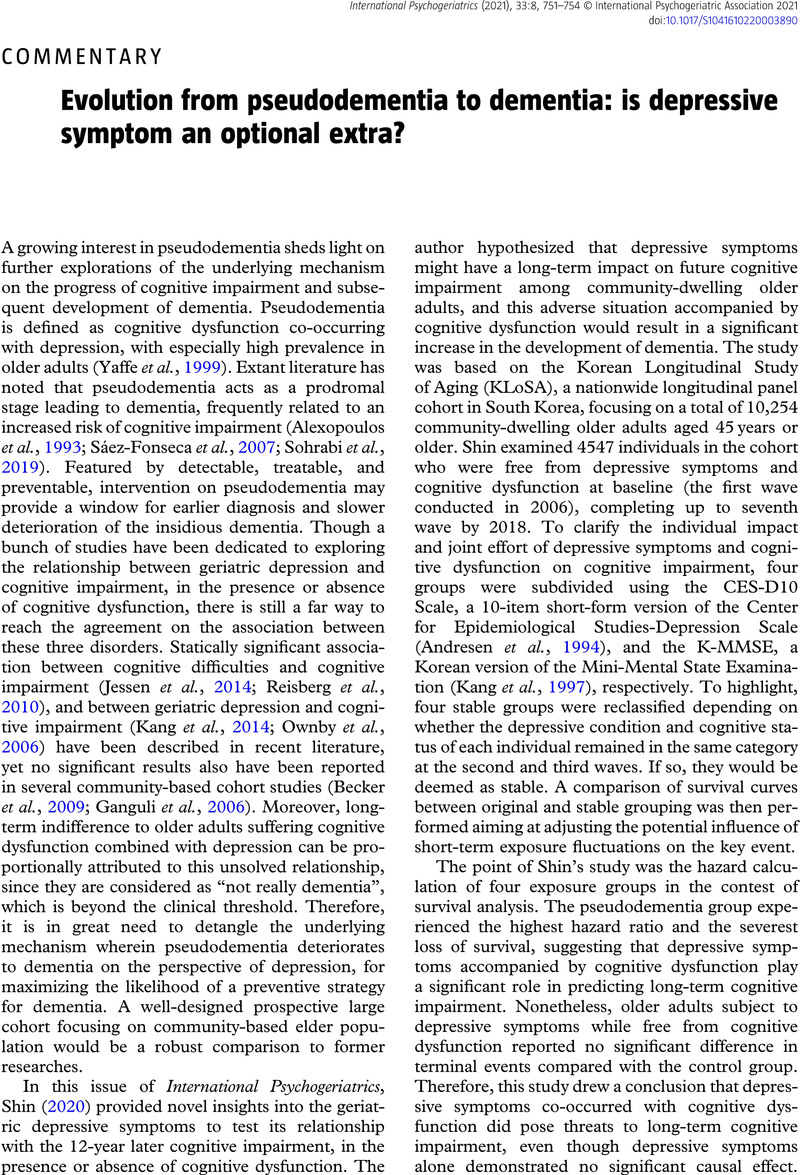Crossref Citations
This article has been cited by the following publications. This list is generated based on data provided by Crossref.
Baek, Seong-Uk
and
Yoon, Jin-Ha
2023.
Depressive Symptomatology as a Predictor of Cognitive Impairment: Evidence from the Korean Longitudinal Study of Aging (KLOSA), 2006–2020.
Biomedicines,
Vol. 11,
Issue. 10,
p.
2713.



